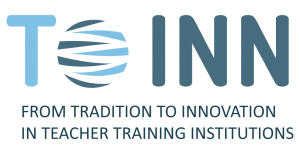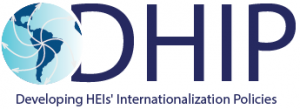
- ACACIA
- TO INN
- DHIP

Acacia is an international project in which Universidad Pedagógica Nacional is participating together with 13 European and Latin-American universities within the framework of the project Erasmus Plus of the European Union.
Acacia’s objective is to foster the integration of universities through the design and validation of Centers for Educational and Professional Support and Development (CEPSD) with the aim of reducing to a minimum the number of students dropping out from higher education due to economic, social, affective and other factors.
This project is carried out through the strengthening and transfer of good practices that support, communicate, innovate and receive the university community based on a system of modules. These modules are called Empower, Innovate, Cultivate, Support and Call, and they integrate the design, management and implementation of a set of accessible contents, strategies, guidelines and adjustments.

TO-INN articulates a network formed by 22 institutions of higher education from seven Latin-American and five European countries (Argentina, Bolivia, Colombia, Ecuador, Honduras, Mexico, Paraguay; Spain, the Netherlands, England, Italy, Portugal).
The project TO-INN aims at improving the quality, capacity of innovation and the relevance of the performance of teacher-training institutions in common critical areas as well as at strengthening their social dimension through the implementation of an Interuniversity Action Plan. Thus, the expectation is to improve the efficacy and efficiency of the respective education systems for the benefit of the societies in the different countries.
One of the core topics of this project is the necessity of sharing the proposals of innovative teaching methods the universities implement to optimize the learning of new knowledge, skills and attitudes for future teachers. If we wish for citizens able to cope with new social challenges, we should know the training models, modalities and strategies the universities apply in their teacher training programmes.
Therefore, teacher training allows us to recognize and put into practice innovative ways of integrating key competences. It also allows us to improve the social relevance of the curricula in order to adjust their internal structure, functioning and results to the learning necessities of the students as well as to the interests and claims of their respective social, cultural and economic environments.

The project DHIP - Developing HEI's Internationalization Policies – is coordinated by Pisa University. It focuses on capacity building in institutions of higher education and is approved for execution during 2018, 2019 y 2020.
The Consortium DHIP is composed of twelve universities and two foundations with the Toscana region as associated partner. Apart from Pisa University, the European partners are the universities of Sassari, Oporto (Portugal) and Deusto (Bilbao – Basque Country). Argentina, Colombia and Paraguay are the three Latin-American countries involved in this project. They are represented by Universidad Nacional de Cuyo, Universidad Nacional de Quilmes and Universidad Nacional de Lanús (Argentina); Universidad del Cono Sur de las Américas, Universidad Autónoma de Asunción and Universidad Iberoamericana (Paraguay); Universidad Pedagógica Nacional, Universidad de Santander and Fundación Universitaria Empresarial (Colombia). Fundación Eurosur plays a key role in facilitating the connection between the two geographical areas as it has offices in Italy and in Argentina.
DHIP’s objective is to foster and integrate the internationalization capacities of the Latin-American partner organisations through the design and implementation of individual “Plans for the improvement of internationalization”. These plans are tools to improve the potential of global interaction of each institution and are based on the individual use of instruments and examples of good practices that have been developed worldwide in recent years.
For more information go to www.projectdhip.com